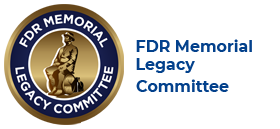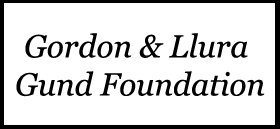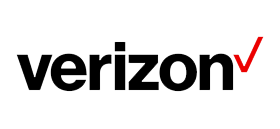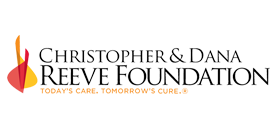FDR Memorial Legacy Committee (FDR Committee)
The FDR Committee, founded in 2019, is a citizen-led organization with the mission to promote education about the FDR Memorial, to improve inclusion and accessibility so all visitors can experience the Memorial and to preserve the Memorial for future generations. The organization, borne out of the successful disability led campaign in the 1990s for disability representation at the Memorial, is committed to sharing the diverse perspectives of the Roosevelt era and that era's legacy today.
To achieve our mission, we focus on the following:
Education
- Create educational content on disability and other underrepresented stories from the Memorial and the Roosevelt era.
- Run teacher professional development workshops on how to use the FDR Memorial in instruction.
- Embed workforce preparation and training in our educational materials.
Inclusion
- Champion the FDR Memorial to be a model of accessibility & inclusion.
- Ensure inclusive, diverse, and culturally responsive resources and content are available as part of the FDR Memorial experience.
- Advocate for policies and programs consistent with Roosevelt’s legacy of equality, dignity, and independence
Preservation
- Call for the National Park Service to prioritize repairs and preservation at the FDR Memorial and the surrounding areas on the National Mall to maintain the cultural landscape.
- Document the disability community’s fight for representation, and the many other lesser known/untold stories of the Memorial and Roosevelt era.
To learn more about the FDR Committee visit https://fdrmemoriallegacy.com/
University of the District of Columbia (UDC)
The location for the majority of in-person work will be UDC’s Campus in Northwest DC. 4200 Connecticut Ave NW, Washington, DC 20008
UDC is the public university of the District of Columbia and is an HBCU (historic black college or university). It is a land grant university and was established in 1851.
The University of the District of Columbia is historic and modern, all at the same time. Public higher education in the District is rooted in the school for “colored girls” that Myrtilla Miner founded in 1851 in Washington, D.C., which came to be called the Miner Normal School. Washington Normal School, a school for white girls established in 1873, was renamed Wilson Normal School in 1913, after James O. Wilson, Washington’s first superintendent of public schools. In 1929, Congress enacted a statute that converted both normal schools into four-year teachers colleges. For several years, Miner Teachers College and Wilson Teachers College were the only institutions of public higher education in the city. After the landmark U.S. Supreme Court school desegregation decision, Brown v. Board of Education (U.S. 1954), the two colleges merged in 1955 to form the District of Columbia Teachers College. Over the next decade, D.C. residents petitioned for an expansion of higher education that would provide training for careers other than teaching. In 1966, Congress enacted the District of Columbia Public Education Act, which established Federal City College and Washington Technical Institute.
Although these schools were still very new, many Washingtonians continued to advocate for a comprehensive university. The City Council authorized the consolidation of the three schools, and in 1976, began the monumental task of creating a new University of the District of Columbia. In 1977, under President Carter’s leadership, UDC began consolidating its academic programs. These efforts culminated in the establishment of five colleges: Business and Public Management; Education and Human Ecology; Liberal and Fine Arts; Life Sciences; Physical Science, Engineering, and Technology; and University College and Continuing Education.
UDC continues to transform itself over time to meet the changing needs of its students and the community. The University currently offers 81 undergraduate and graduate academic degree programs through the following colleges and schools: College of Agriculture, Urban Sustainability and Environmental Sciences (CAUSES); College of Arts and Sciences (CAS); School of Business and Public Administration (SBPA); School of Engineering and Applied Sciences (SEAS); the Community College and David A. Clarke School of Law.
Embracing its essence as a public historically black urban-focused land- grant university in the nation’s capital, UDC is dedicated to serving the needs of the community of the District of Columbia, and producing lifelong learners who are transformative leaders in the workforce, government, nonprofit sectors and beyond.
To learn more visit https://www.udc.edu/







